
Exploring the Vibrant Heart of Comoro, Dili
Comoro, located in the bustling city of Dili, Timor-Leste, is a neighborhood that offers a vibrant blend of culture, history, and natural beauty. As you wander through the streets of Comoro, you'll find a delightful mix of traditional Timorese charm and modern amenities. The neighborhood is a melting pot of local markets, cultural landmarks, and scenic spots, making it a must-visit destination for any traveler. The local markets in Comoro are a feast for the senses. Here, you can find an array of fresh produce, handmade crafts, and local delicacies. The friendly vendors are always eager to share stories and offer samples, giving you a taste of the rich Timorese culture. Don't miss the chance to try some traditional dishes, such as ikan sabuko (grilled fish) and batar daan (corn and mung bean stew). A visit to Comoro wouldn't be complete without exploring its historical landmarks. The Motael Church, one of the oldest churches in Timor-Leste, stands as a testament to the country's colonial past and its enduring faith. Nearby, the Timorese Resistance Archive and Museum offers a poignant glimpse into the struggles and resilience of the Timorese people. As you delve into the history of Comoro, you'll gain a deeper appreciation for the neighborhood's unique character. Nature enthusiasts will find plenty to love in Comoro as well. The neighborhood is home to lush parks and scenic viewpoints that offer stunning vistas of Dili and the surrounding landscape. Take a leisurely stroll along the coast, where you can enjoy the gentle sea breeze and watch the sunset over the horizon. For a more adventurous experience, consider hiking up one of the nearby hills for a panoramic view of the city. Whether you're a history buff, a food lover, or an outdoor adventurer, Comoro has something to offer. Its vibrant atmosphere, rich cultural heritage, and natural beauty make it a captivating destination that will leave you with unforgettable memories.
Local tips in Comoro
- Visit the local markets early in the morning to experience the freshest produce and the liveliest atmosphere.
- Carry some cash, as many local vendors and smaller establishments do not accept credit cards.
- Dress modestly when visiting religious sites like the Motael Church to show respect for local customs.
- Consider hiring a local guide to gain deeper insights into the history and culture of Comoro.
- Stay hydrated and wear sunscreen, especially if you're exploring the neighborhood on foot.
Iconic landmarks you can’t miss
Cristo Rei of Dili
Explore the breathtaking Cristo Rei of Dili, a stunning 27m statue offering panoramic views and a deep cultural experience in East Timor.
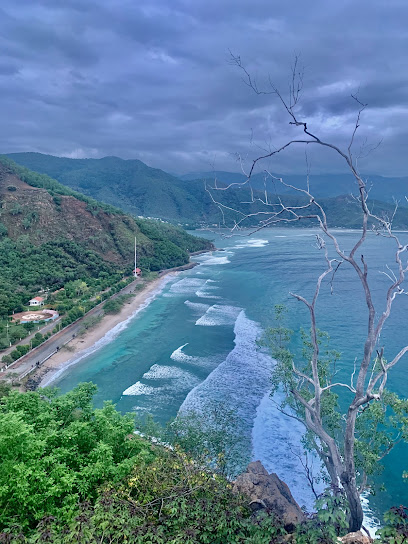
Tais Market
Explore Tais Market in Dili, the vibrant heart of Timor-Leste, where traditional crafts and local flavors come together in a unique shopping experience.
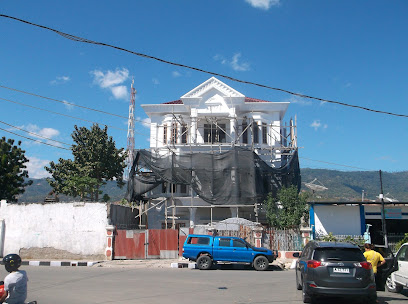
Largo de Lecidere
Explore Largo de Lecidere in Dili, Timor-Leste – a serene park offering picturesque views, lush landscapes, and a vibrant local atmosphere.
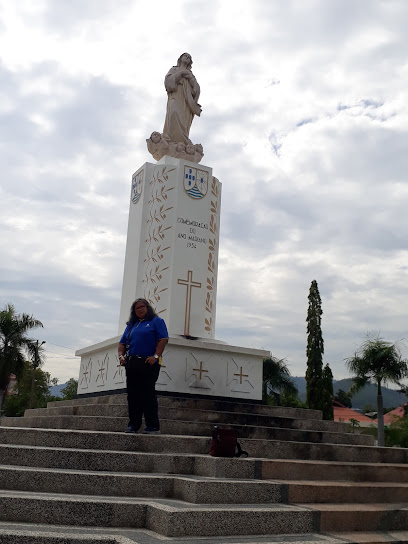
Immaculate Conception Cathedral
Explore the Immaculate Conception Cathedral in Dili, a stunning blend of cultural heritage and architectural beauty in Timor-Leste.
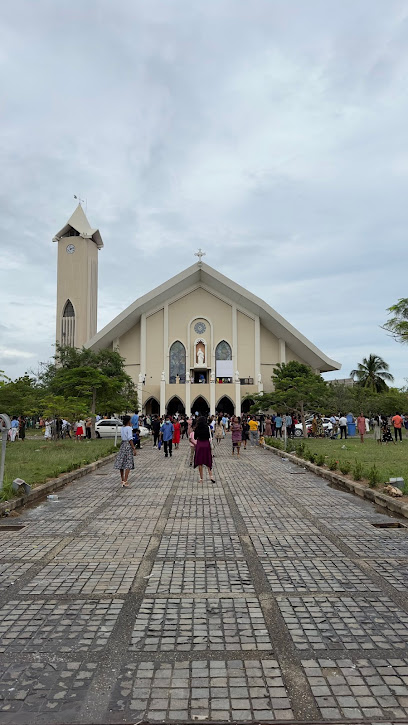
Church of Saint Anthony of Motael
Explore the historic Church of Saint Anthony of Motael in Dili, Timor-Leste – a serene sanctuary rich in cultural heritage and stunning architecture.
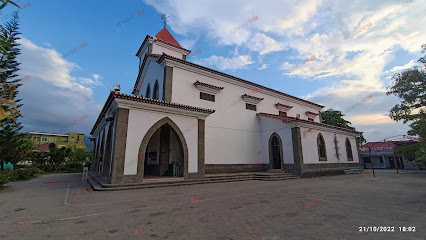
Aquatica Dive | Timor Leste / East Timor
Dive into the stunning underwater world of Timor Leste at Aquatica Dive, where adventure meets sustainability in an unforgettable experience.
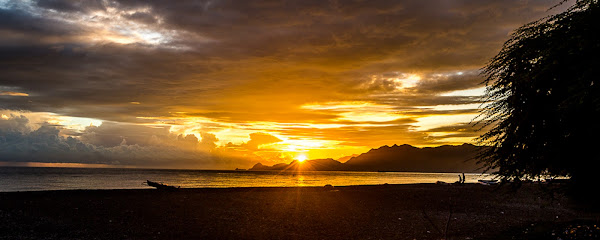
JL Villa
Experience the tranquility of JL Villa in Dili, where comfort meets nature in a stunning setting perfect for relaxation and adventure.
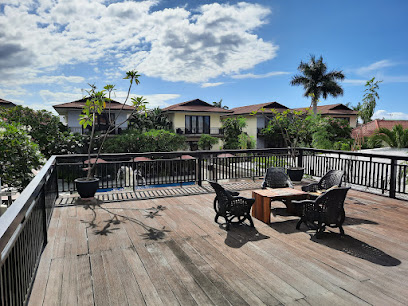
Comoro River
Experience the beauty and tranquility of the Comoro River in Dili, Timor-Leste—an ideal destination for nature lovers and adventure seekers.
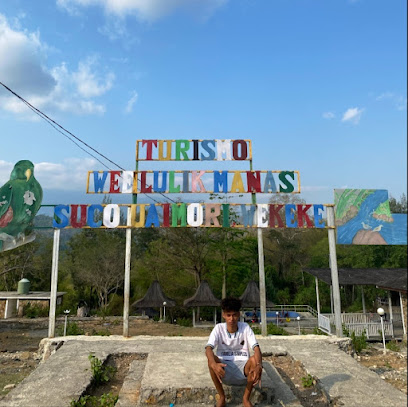
Comoro
Explore Comoro in Dili, a vibrant school embodying community spirit and cultural engagement in Timor-Leste.

Posto da Polícia Nacional de Timor-Leste Vemasse
Explore the Posto da Polícia Nacional de Timor-Leste Vemasse for a glimpse into Timor-Leste's culture, history, and community spirit.

Unmissable attractions to see
Dive Timor Lorosae
Discover unparalleled diving adventures at Dive Timor Lorosae in Dili, Timor-Leste, where the ocean's beauty awaits every adventurer.
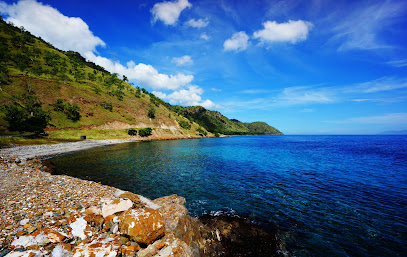
Aquatica Dive | Timor Leste / East Timor
Explore the vibrant underwater world of Timor Leste at Aquatica Dive Resort, where adventure and marine beauty await every diver.
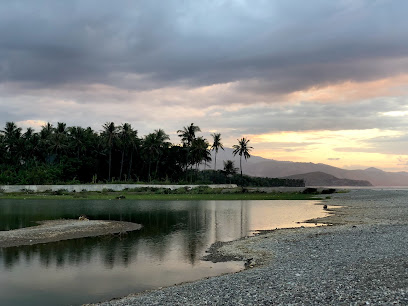
Marobo Hot Spring
Experience the rejuvenating warmth of Marobo Hot Spring in Bobonaro, Timor-Leste, a serene escape surrounded by lush nature and cultural richness.
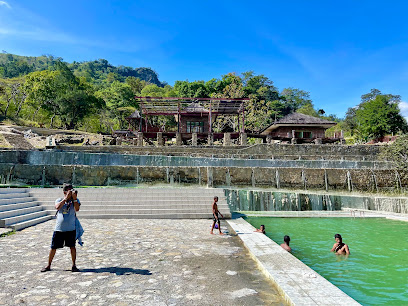
Balibo Trails
Explore the stunning Balibo Trails in Timor-Leste, where nature meets culture amidst breathtaking landscapes and rich historical significance.
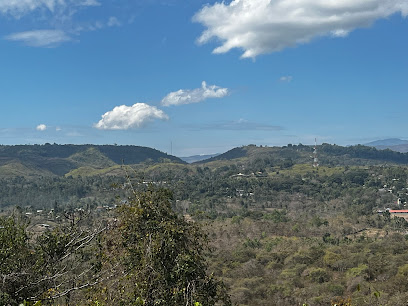
Comoro River
Explore the serene beauty of Comoro River in Dili, a picturesque escape for nature lovers and cultural enthusiasts alike.
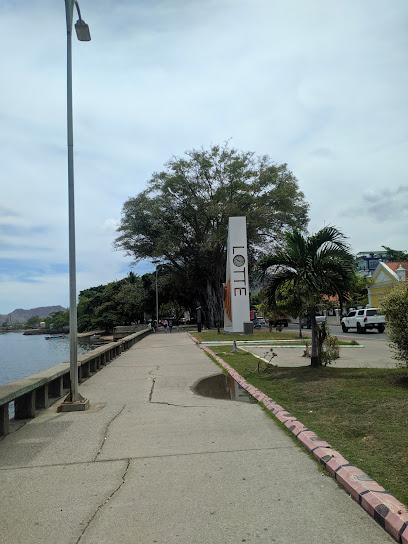
Essential places to dine
Caz Bar
Experience the vibrant culinary scene at Caz Bar in Dili – where local flavors meet international cuisine in a lively atmosphere.
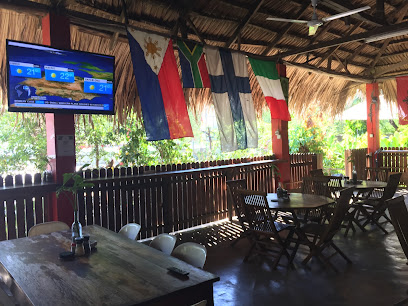
Castaway Bar and Restaurant
Discover exquisite dining at Castaway Bar and Restaurant in Dili - where local flavors meet international cuisine amidst stunning views.
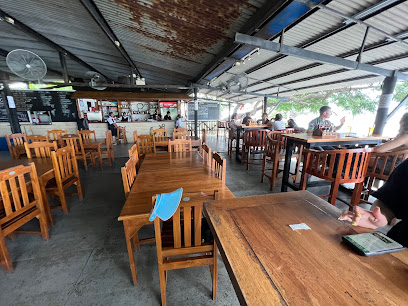
El Legendario
Experience the flavors of Timor-Leste at El Legendario - where local cuisine meets international flair in Dili.
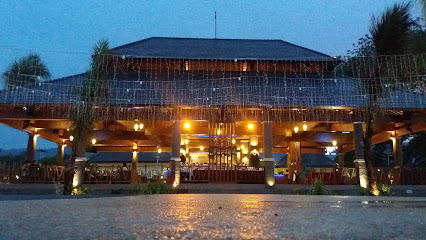
Ocean View Restaurant
Discover Ocean View Restaurant in Dili - A Coastal Dining Experience with Stunning Views and Delicious Local Cuisine.
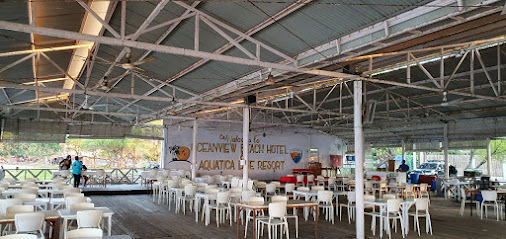
Tito's Restaurant
Experience authentic Portuguese cuisine at Tito's Restaurant in Dili - where every dish tells a story of flavor and tradition.
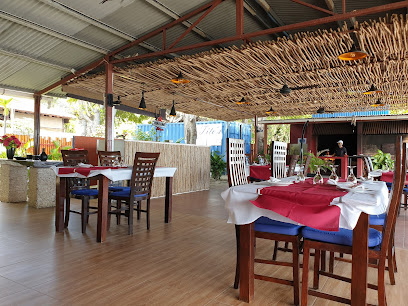
Dilicious Timor
Experience authentic Timorese cuisine at Dilicious Timor in Dili – where rich flavors meet vibrant culture in every dish.
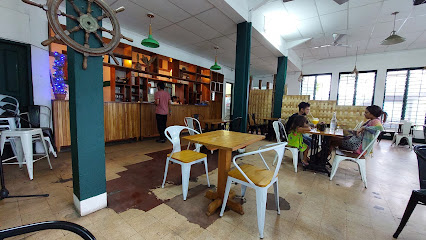
Restaurante Tavirense
Discover authentic Portuguese cuisine at Restaurante Tavirense in Dili, where every dish tells a story of tradition and flavor.
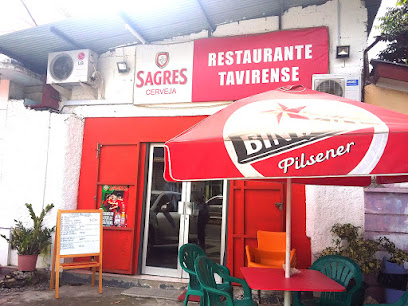
Great Wall Restaurant
Experience the rich flavors of China at Great Wall Restaurant in Díli – a culinary gem offering authentic dishes in a warm atmosphere.
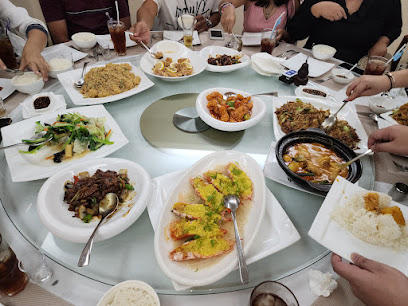
Nha Casa Restaurant
Discover the culinary delights at Nha Casa Restaurant in Díli – where traditional Timorese cuisine meets modern dining experiences.
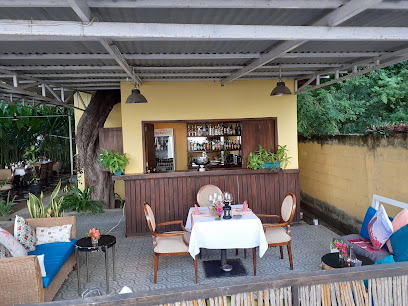
Mota Ain Mota Comoro
Experience authentic Timorese cuisine at Mota Ain Mota Comoro in Dili – a must-visit for food lovers seeking local flavors.
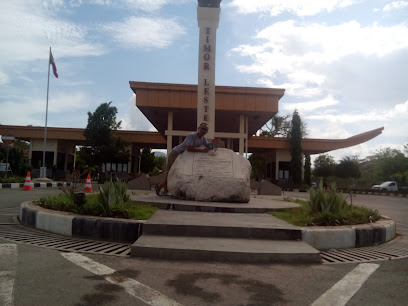
Markets, malls and hidden boutiques
Oil Paintings For Sale
Explore Dili's vibrant art scene at this unique gift shop and art gallery, featuring stunning oil paintings that celebrate Timor-Leste's cultural heritage.
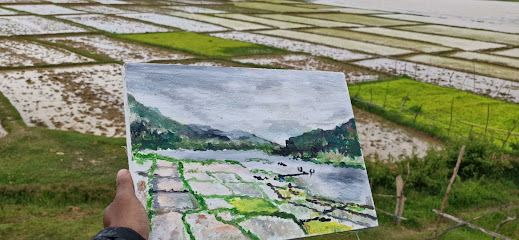
Lita Store
Explore the best of Dili at Lita Store, your go-to supermarket for local and international products in East Timor.
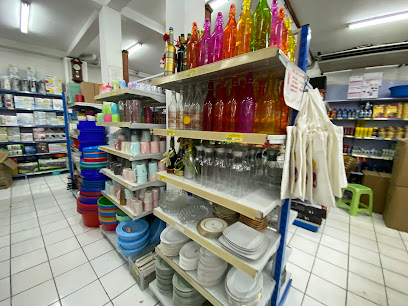
Dilimart
Explore the vibrant culinary landscape of Dili at Dilimart, your go-to grocery store for local and international delights.
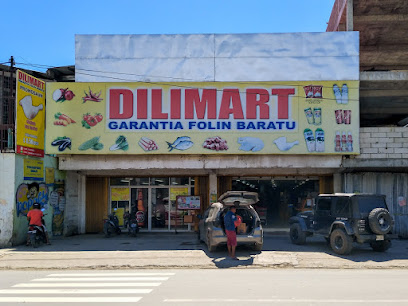
Golgota Mall
Explore the vibrant shopping culture of Dili at Golgota Mall, where modern shopping meets local charm in Timor-Leste.
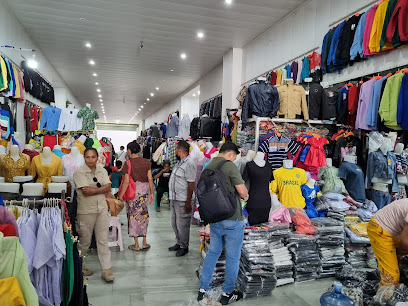
Beto Leste
Experience the vibrant shopping culture of Dili at Beto Leste, a hub of fashion, cuisine, and local Timorese charm.

Loza Online Dili
Explore the unique blend of clothing and electronics at Loza Online Dili, a shopping destination filled with local culture and style.

Bele Kria Sewing Centre
Discover the art of sewing at Bele Kria Sewing Centre in Dili, where local craftsmanship meets vibrant textiles for an unforgettable experience.

HAU TIMOR
Discover authentic Timorese souvenirs at HAU TIMOR, where each handcrafted item reflects the rich culture and artistry of Timor-Leste.
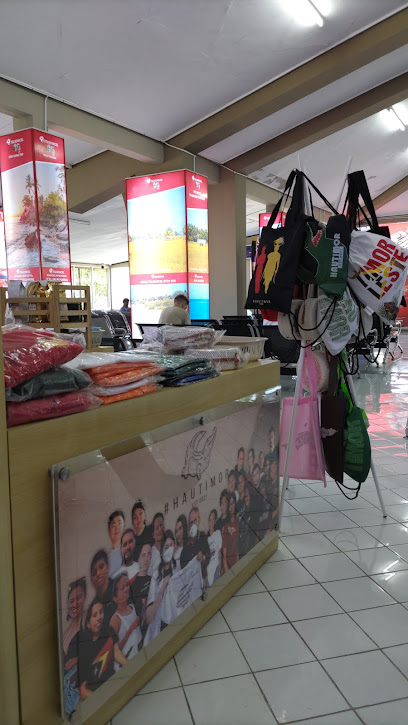
MiruVibes Olshop
Explore unique clothing and accessories at MiruVibes Olshop, a vibrant clothing store in Dili, where local fashion meets cultural flair.

Prilamora
Discover Prilamora in Dili: a vibrant shopping mall offering local crafts, international brands, and delicious food experiences for every traveler.

Essential bars & hidden hideouts
Castaway Bar and Restaurant
Explore the vibrant flavors and laid-back atmosphere of Dili's premier dining destination, Castaway Bar and Restaurant.
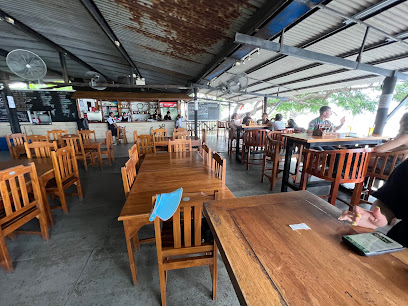
Spooners Bar and Grill
Discover the vibrant atmosphere and delightful cuisine at Spooners Bar and Grill in Dili, where local flavors meet coastal charm.
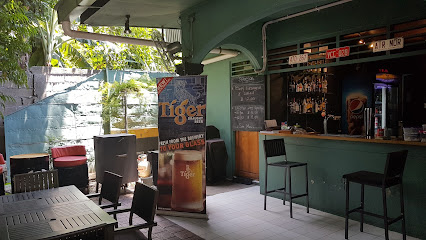
Black Box Cafe and Bar
Discover the vibrant atmosphere of the Black Box Cafe and Bar, a perfect blend of local flavors and a lively ambiance in Dili.
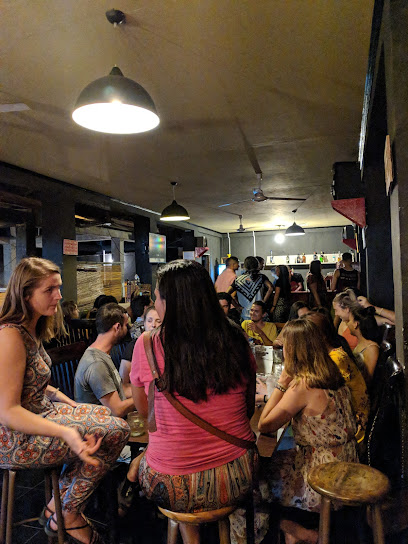
Tower Cafe & Bar
Experience the vibrant atmosphere and stunning views at Tower Cafe & Bar, a must-visit spot for every traveler in Dili.
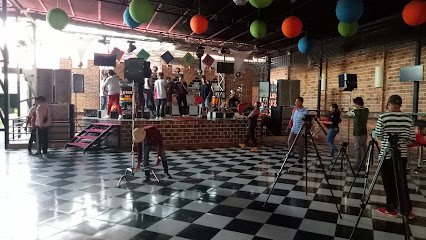
Ponkys Cocktail Lounge
Discover the lively atmosphere and exquisite cocktails at Ponkys Cocktail Lounge, a top nightlife destination in Dili, Timor-Leste.
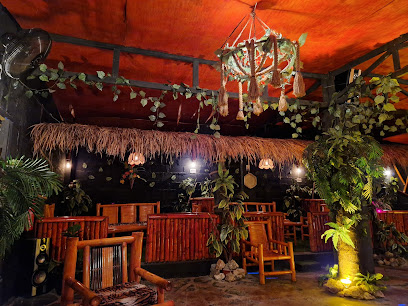
Reggae Bar
Enjoy the vibrant atmosphere of Reggae Bar in Dili, where live music and local culture create unforgettable memories.

Comoro
Experience the vibrant nightlife of Dili at Comoro, where local culture meets lively entertainment and refreshing drinks.

Amaral Bar
Experience the vibrant nightlife of Dili at Amaral Bar, where local culture meets refreshing drinks in a lively atmosphere.

Maria dili
Experience the lively atmosphere and local flavors at Maria Dili, a vibrant bar in the heart of Dili, Timor-Leste.

Haksolok Bar
Experience the vibrant nightlife of Dili at Haksolok Bar, where refreshing beverages and local culture meet in a lively setting.
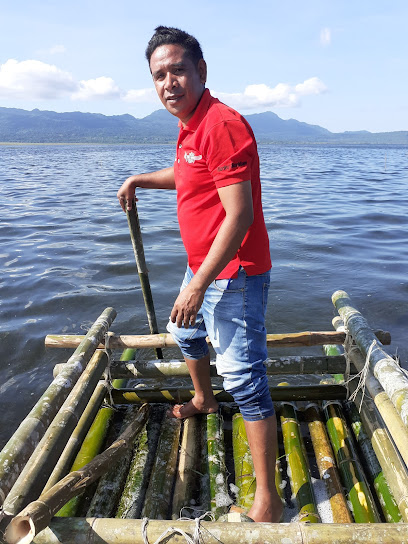
Local Phrases
-
- HelloBondia
[bon-dee-ah] - GoodbyeAdeus
[ah-deh-oosh] - YesSim
[seem] - NoLae
[lie] - Please/You're welcomePor favor
[por fah-vor] - Thank youObrigadu
[oh-bree-gah-doo] - Excuse me/SorryDeskulpa
[dess-kool-pah] - How are you?O di'ak?
[oh dee-ahk] - Fine. And you?Di'ak. Ita?
[dee-ahk ee-tah] - Do you speak English?Ita koalia Ingles?
[ee-tah koh-ah-lee-ah een-glees] - I don't understandHau la kompriende
[how la kohm-pree-en-deh]
- HelloBondia
-
- I'd like to see the menu, pleaseHau gosta hare menu, favor
[how goh-stah hah-reh meh-noo fah-vor] - I don't eat meatHau la haka'u katu
[how la hah-kah-oo kah-too] - Cheers!Saude!
[sow-deh] - I would like to pay, pleaseHau gosta selu, favor
[how goh-stah seh-loo fah-vor]
- I'd like to see the menu, pleaseHau gosta hare menu, favor
-
- Help!Ajuda!
[ah-joo-dah] - Go away!Ba malu!
[bah mah-loo] - Call the Police!Liga Polisia!
[lee-gah poh-lee-see-ah] - Call a doctor!Liga dotora!
[lee-gah doh-toh-rah] - I'm lostHau mate
[how mah-teh] - I'm illHau moras
[how moh-rash]
- Help!Ajuda!
-
- I'd like to buy...Hau gosta hola...
[how goh-stah hoh-lah] - I'm just lookingHau deit hakarak hare
[how dayt hah-kah-rak hah-reh] - How much is it?Kuantu kustu?
[kwan-too koos-too] - That's too expensiveIda ne'e masa kareta
[ee-dah neh-eh mah-sah kah-reh-tah] - Can you lower the price?Ita bele baixu prezu?
[ee-tah beh-leh bah-ee-shoo preh-zoo]
- I'd like to buy...Hau gosta hola...
-
- What time is it?Oras ne'e ki'ak?
[oh-rahs neh-eh kee-ahk] - It's one o'clockOras ne'e ida
[oh-rahs neh-eh ee-dah] - Half past (10)Metade (10)
[meh-tah-deh (10)] - MorningManha
[mah-nyah] - AfternoonTarde
[tahr-deh] - EveningTuku tarde
[too-koo tahr-deh] - YesterdayOhin loron
[oh-heen loh-rohn] - TodayOhin
[oh-heen] - TomorrowAban
[ah-bahn] - 1Ida
[ee-dah] - 2Rua
[roo-ah] - 3Tolu
[toh-loo] - 4Apat
[ah-paht] - 5Lima
[lee-mah] - 6Nein
[nayn] - 7Hitu
[hee-too] - 8Ualu
[oo-ah-loo] - 9Sia
[see-ah] - 10Sanulu
[sah-noo-loo]
- What time is it?Oras ne'e ki'ak?
-
- Where's a/the...?Iha ne'e...
[ee-hah neh-eh] - What's the address?Enderecu saida?
[en-deh-reh-soo sah-ee-dah] - Can you show me (on the map)?Ita bele hatudu hau (iha mapa)?
[ee-tah beh-leh hah-too-doo how (ee-hah mah-pah)] - When's the next (bus)?Bainhira ba dala ruma?
[bah-een-hee-rah bah dah-lah roo-mah] - A ticket (to ....)Bilhete (to ....)
[beel-yeh-teh (to ....)]
- Where's a/the...?Iha ne'e...
History of Comoro
-
Comoro's history is deeply intertwined with the colonial era, particularly during the Portuguese colonial period, which began in the 16th century. As one of the earliest European settlements in the region, the Portuguese established trade routes and fortified outposts, with Comoro serving as a strategic point for maritime activities. This led to the introduction of Portuguese culture, language, and religion, significantly impacting the local populace.
-
In 1975, following the Portuguese withdrawal, Timor-Leste was invaded by Indonesia, leading to a brutal occupation. Comoro, being part of Dili, witnessed significant conflict and military presence during this time. The area became a focal point for resistance movements, with many locals becoming involved in the fight against oppression. The Indonesian regime's impact on Comoro was profound, as it reshaped the social and political fabric of the community.
-
The late 1990s were pivotal for Comoro as the struggle for independence intensified. In 1999, a referendum was held in which the people of Timor-Leste voted overwhelmingly for independence from Indonesia. Comoro was affected by violence and destruction during this period, as pro-Indonesian militias targeted neighborhoods in Dili, including Comoro. The resilience of the community was evident as they worked to rebuild their lives in the aftermath of the turmoil.
-
Following Timor-Leste's formal independence in 2002, Comoro has been part of the nation-building process, witnessing significant infrastructure development and growth. The area has evolved into a vibrant community, blending traditional Timorese culture with modern influences. Initiatives focused on education, health, and economic development have transformed Comoro, making it a crucial part of Dili's ongoing progress.
-
Comoro is a melting pot of cultures, showcasing the rich heritage of Timor-Leste. The neighborhood is known for its vibrant markets, traditional crafts, and community gatherings. Festivals and cultural events are commonplace, reflecting the blend of indigenous traditions and influences from Portuguese and Indonesian histories. This cultural vibrancy contributes to the unique identity of Comoro within the broader context of Dili and Timor-Leste.
Comoro Essentials
-
Comoro is easily accessible from various neighborhoods in Dili. From the city center, you can take a taxi or ride a local 'mikrolet' (shared minibus) heading towards Comoro. The journey typically takes around 15-20 minutes depending on traffic. If you're coming from the airport, a taxi is the most convenient option, taking approximately 10-15 minutes.
-
Comoro is primarily navigated by foot, taxi, or mikrolet. There are no trains in Dili, and public transport mainly consists of shared minivans. Taxis are available and can be flagged down or booked via local apps. Bicycles can be rented for a more adventurous way to explore the area, although be cautious of road conditions.
-
Comoro is generally safe for tourists, but standard precautions should be observed. Avoid walking alone at night, particularly in poorly lit areas. Some neighborhoods adjacent to Comoro may experience higher crime rates, so it is advisable to stay vigilant and avoid displaying valuables in public.
-
In case of emergency, dial 112 for police assistance and 118 for medical emergencies. Local hospitals and clinics are available, and it is advisable to have travel insurance that covers medical needs. For minor ailments, pharmacies are scattered throughout the neighborhood.
-
Fashion: Do dress modestly; avoid shorts and sleeveless tops when visiting religious sites. Religion: Do respect local customs and traditions; always ask for permission before photographing people or religious sites. Public Transport: Do give up your seat to elderly passengers; don't eat or drink on public transport. Greetings: Do greet with a smile and handshake; don’t be overly familiar with personal space. Eating & Drinking: Do try local dishes and accept food offers; don’t refuse hospitality, as it may offend your hosts.
-
To experience Comoro like a local, visit the markets where fresh produce and local goods are sold. Engage with vendors and locals to learn about their culture and traditions. Consider participating in community events or festivals if they coincide with your visit, as these provide a great insight into local life. Additionally, try to learn a few basic Tetum phrases to enhance your interactions.
Nearby Cities to Comoro
-
Things To Do in Aileu
-
Things To Do in Gleno
-
Things To Do in Ermera
-
Things To Do in Same
-
Things To Do in Bobonaro
-
Things To Do in Suai
-
Things To Do in Baucau
-
Things To Do in Lospalos
-
Things To Do in Darwin
-
Things To Do in Makassar
-
Things To Do in Manado
-
Things To Do in Bali
-
Things To Do in Balikpapan
-
Things To Do in Surabaya
-
Things To Do in Yogyakarta



